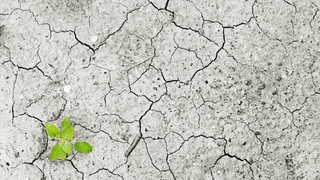The recent reports on climate change all describe the disastrous impacts humans have on this precious world. Human impact has raised the temperature of the oceans, atmosphere, and land. These reports also explain the latest science on climate change and what we can actually expect to happen in the coming centuries.
It isn't good news, and without all the important reduction in overall greenhouse gases in the next decades, it is highly unlikely that global temperatures will go even higher than the 1.5C threshold. It was set in the 2015 Paris climate agreement.
There is an urgent need to bring the idea of a smart building and accept it into our daily lives. Some dramatic changes are happening worldwide that highlight the emergency to take action. Some of those facts are stated below:
1. The Amount Of CO2 In Our Atmosphere Is At An All-Time High As Compared To Human History:
In February 2021, the sensors in the Mauna Loa observatory located in Hawaii detected CO2 concentrations of even more than 417 ppm. These are the same sensors that have tracked Earth's atmosphere and the concentration of CO2 in it since the late 1950s. The pre-industrial levels used to be 278 ppm, meaning that humans are halfway doubling the amount of CO2 in our atmosphere compared to the period between 1750 and 1800.
This concentration of CO2 fluctuates along with the seasons, but the last time our atmosphere was so full of CO2 was 3 million years ago. It was when sea levels were many meters higher, and there were trees at the South Pole.
2. We Are Set To Exceed 1.5C Of Global Warming:
In 2015, the nations behind the Paris Agreement set their ambitious target for keeping this global warming under 1.5C. The recent IPCC report also shows how hard it will be for the world to stay within this limit unless we slash emissions drastically in the coming future.
This report also models the five different emissions in the future, from the very high emissions to the least emissions. And in every case, global surfaces are seen to hit around 1.5C.
3. Our Carbon Budget Left Is Tiny:
At its center, climate change is a very simple thing to grasp. The more CO2 and other warming gases we release into our atmosphere, the higher the global temperatures will rise. Between 1850 and 2019, humans released 2390 gigatonnes of CO2 into our precious atmosphere. One gigatonne equals one billion metric tons, which is A-LOT of CO2.
So far, these emissions have led humanity to face 1.07C of warming compared to the pre-industrial times. To keep a 50/50 chance of staying under 1.5C of global warming, we may only release some extra 500 gigatonnes of CO2, including emissions starting from 2020. During 2019, we released around 36 gigatonnes of Co2, and as these emissions are yet to peak, it seems highly likely that the world will sail past that budget of Carbon.
4. Extreme Heat Happenings Have Not Become More Severe And Frequent:
You only require to think of the recent outbreaking and devastating wildfires in California, Australia, or Southern Europe to have a look at climate change. You will see that there are more severe and frequent hot weather situations. The extremely heated events, which wothatnly have happened an average of once in ten years, are now happening 2.8 times each decade and may even rise.
Now heavy rain is also a lot more common due to climate change. The overall kind of heavy one-day rain, which only happened once in ten years 150 years ago, is now happening 1.3 times every ten years.
5. Humans Have Caused 1.07C Of Global Warming:
The reports on global warming estimate that global surface temperatures are 1.07C warmer than they used to be between 1850-1900. Since 1970, the temperatures have risen a lot faster than in the 50 years in the last 2,000 years, and it has also been partially called in recent years, with 2016-2020 being the hottest years recorded since 1850.
These facts are enough to make it clear that our world is changing. It needs our urgent change in behaviors. We have to shift to renewable energies and move into smart houses that are not impacting the climate as much. You have to take cautious steps in making our planet a place to live in the coming centuries.

